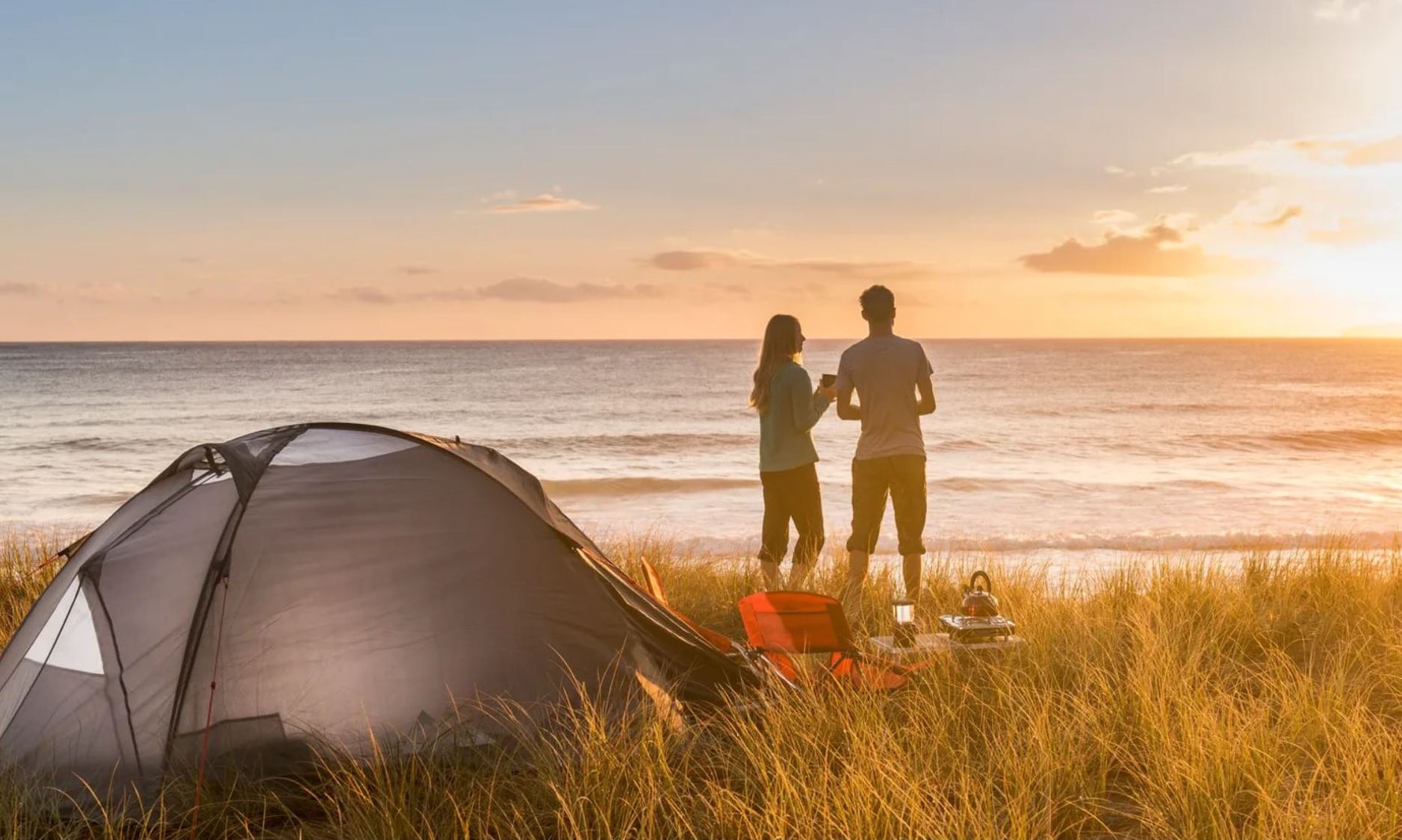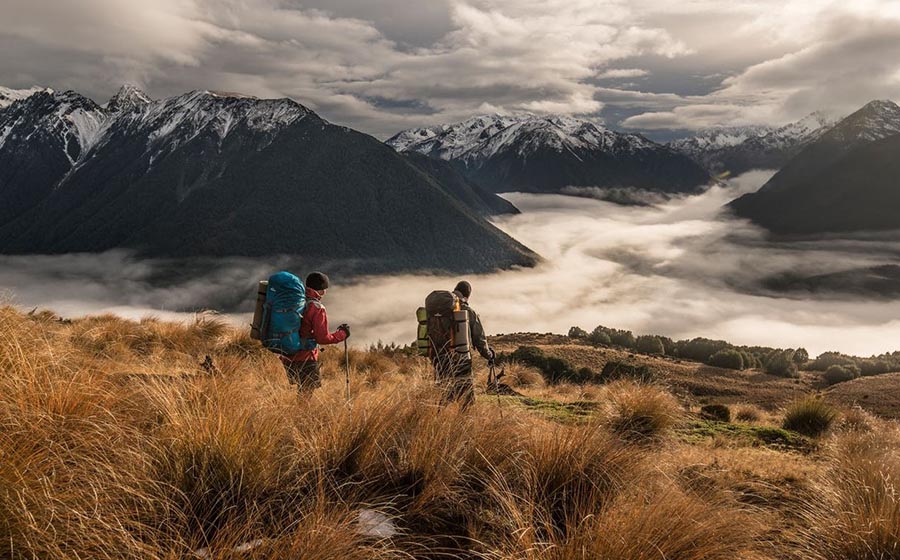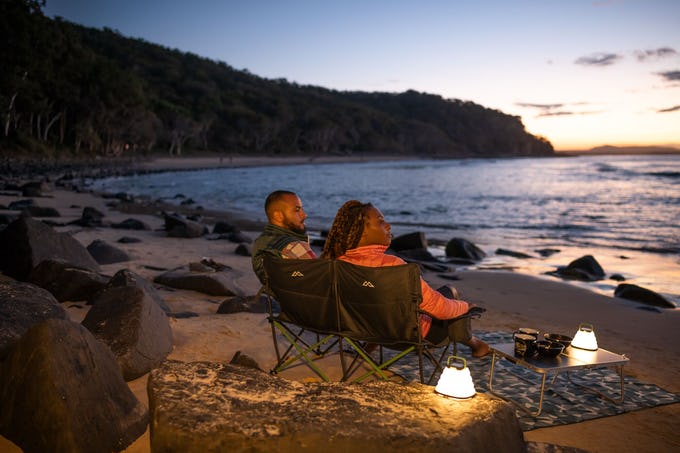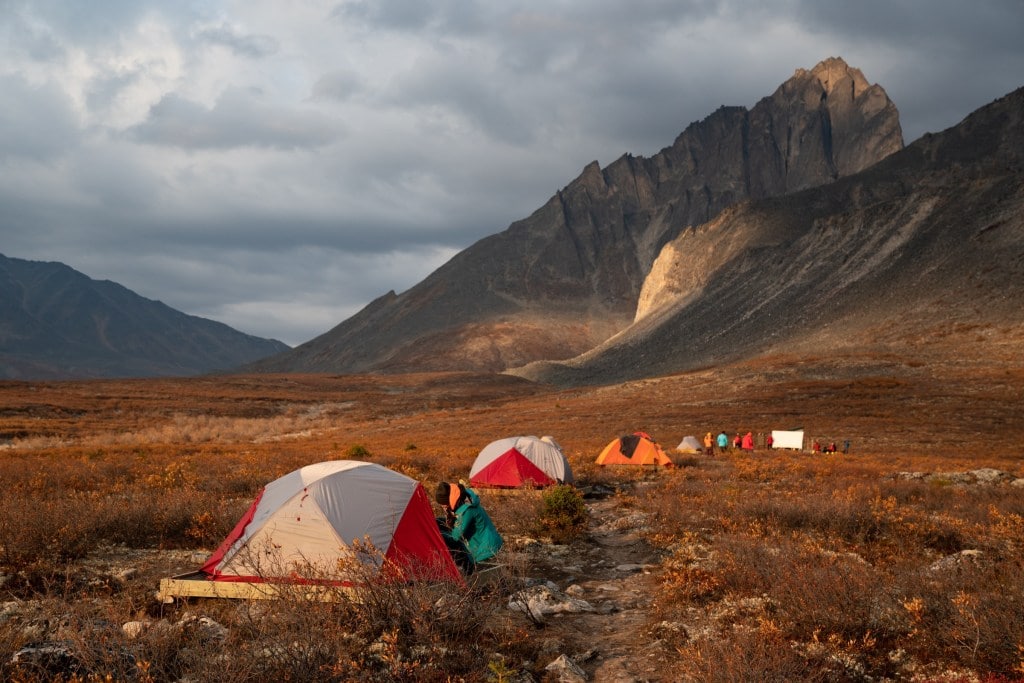Whether you’re a frequent camper or not, we all need time in nature to reconnect with ourselves and the environment that nourishes us. It’s a space for meditative isolation and child-like desires for an adventure.
At least, that’s what camping offers me.
For all of us who understand that we’re living in a climate crisis, we feel the need to do better. That’s why I bring you these tips I live by for sustainable camping.
It’s okay if your trip isn’t sustainable to perfection. As long as you’re doing the best with the resources you have and be respectful of the places you’re visiting.


Image via Kathmandu – New Zealand
1. Use Camping Gear That Already Exists
If you’re a frequent camper and have your camping gear, then you’re ready to go! If not, use what already exists and borrow it. The number of people who have lying around tents will surprise you!
If you plan on making your camping trips a regular thing, buy second-hand (Gumtree and Facebook Marketplace are great for second-hand camping gear). If you buy new, invest in quality and choose brands that use more sustainable or recycled materials.
2. Plan Meals and Reduce Waste
We have to keep saying it. Single-use plastics are dangerous for animals inland and in the sea.
Make food ahead of time or if cooking is not your forte, Patagonia do great sustainable provisions or stop by a local restaurant or shop (support small towns) and grab some ready-made food or snacks and bonus points for bringing your own containers. Use silverware, reusable water bottles, containers, and reusable napkins.
Take your trash with you. Everything you bring in, make sure it leaves with you. Silicone pouches or light containers that seal are great for storing food and other waste and packaging until you can dispose of it responsibly at home.

Image via Summit Journal
3. Use Biodegradable Soap
To clean your dishes or if you plan to have a wash, make sure to bring soap that’s not going to harm the environment and wash upstream, never in still water. An all-in-one unscented soap will work for your hair, body, clothes and dishes, so it’s a great option to keep things simple.
4. Stick to the paths
When you stray off the designated trails or campsites, you risk crushing plants, disrupting the local wildlife and contributing to soil erosion in the area. You might feel inclined to explore an area without a trail, but if everyone started doing it, it’s going to take a long time for the land to heal.
5. Don’t feed wildlife
As tempting as it is to share your lunch with the cute wild visitors, just don’t it. You disrupt the natural ecosystem, it can spread disease, encourage animals to become reliant on humans, or you could be injured. Keep a respectful distance and appreciate the wildlife as it should be, wild.

Image via Arc’teryx
6. Keep Fires Small and Safe
The crackling sounds of the fire, and getting all cozy, is perhaps one of the best feelings in the world. Make sure you start fires with local wood in designated areas, away from vegetation.
You don’t want to bring foreign wood into native land or use sticks from your surroundings as they are paramount to the ecosystem. Keep the fires small and put them out completely. We don’t need any more fires!
7. Leave The Site With More Than What You Came With
In a perfect world, at least in mine, camping generates zero waste. But producing trash will be inevitable for most of us. Make sure you know the right place for your trash or take it with you.
A rule of thumbs I stick by when camping: leave the site with more than what you came with. Make it a habit to pick up trash when taking a stroll on the beach or hiking and adequately dispose of it.


